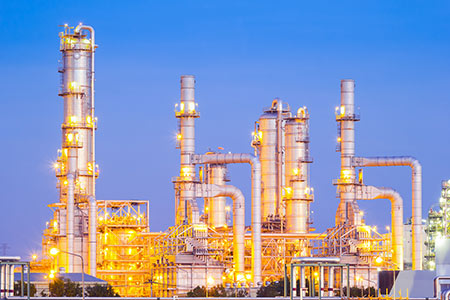Pakistan is scheduled to receive around 750,000 barrels of Urals crude over the coming days, which would mark the South Asian nation’s first commercial-scale purchase of Russian crude oil as it looks to take advantage of steep discounts on the medium sour grade to save on energy import costs and dollar reserves, industry and government sources said over May 27-30.
Pakistan had signed an agreement to purchase 750,000 barrels of Urals crude for delivery into an Omani port in May and Islamabad arranged for it to be brought to Karachi’s Qasim port in small batches in the first half of June, according to refining industry sources and Petroleum Minister Musadik Malik.
Pakistan’s southern ports and oil terminals are only capable of handling a maximum oil tanker capacity of 50,000 mt, or around 370,000 barrels, and it was necessary for the Russian crude to be first berthed in Oman, Malik said.
Malik did not disclose any price details, while government officials contacted by S&P Global Commodity Insights also declined to comment on the price differential or the spot discount for the cargo.
However, refining industry sources based in Karachi and sour crude traders based in Singapore with close knowledge of South Asia’s crude trade flows indicated that Pakistan may have acquired the Urals crude at a discount of as much as $20/b to Platts Dated Brent or Platts front-month Dubai on CFR basis, with a possible payment option in non-dollar currencies.
Platts assessed Urals FOB Primorsk at an outright price of $51.325/b on May 26, compared with assessments of Cash Dubai at $75.34/b and Dated Brent at $76.435/b on the day, S&P Global data showed.
As Pakistan continues to suffer from a severe shortage of foreign exchange reserves, any short or long-term deals with Russia to take crude and oil products at low prices would help reduce the nation’s financial burden, government officials, refinery executives and Karachi-based analysts previously told S&P Global.
In theory, Pakistan could save about $1 billion annually on its overall oil import bills, taking into consideration the price cap of $60/b on Russian crude and assuming some of the distressed Russian oil product cargoes could be bought at discounts of 30% or more to the international benchmark market value, S&P Global reported earlier citing various Karachi-based analysts.
Quality, specification, economics
Looking forward, however, Islamabad’s plan to import more cargoes from Russia would hinge on rigorous assessments of the crude’s yield of different distillation cuts and refining economics, industry participants said.
State-run Pakistan Refinery Ltd, or PRL, will process the Urals crude on test basis after blending it with several Saudi and Abu Dhabi crude grades, Malik said.
A positive outcome from the testing phase would encourage the government to extend the Islamabad-Moscow agreement to import more Russian crude in higher volumes, industry sources said.
In June 2022, local refiners’ initial assessment of small samples of various Russian crude grades had indicated that Urals could be one of the most suitable feedstock options as they are most familiar with similar medium sour grades from the Middle East.
After conducting deeper assessments and analysis of feedstock specifications and refinery configurations, the industry found that lighter and sweeter Russian crude grades such as ESPO Blend and Sokol could be better suited, S&P Global reported previously citing minister Malik and PRL’s Managing Director Zahid Hussain.
Pakistan’s refining industry would need to conduct more studies to address the dilemma of choosing between medium sour Urals and low sulfur Far East Russian grades, industry analysts and sour crude traders based in Karachi and Singapore said.
Unlike the highly sophisticated refineries in Northeast Asia and India, Pakistani plants cannot process heavier and more sour grades like Urals with maximum middle distillate production yield efficiency, a PRL executive told S&P Global previously.
The cost of bringing low sulfur Sokol and ESPO crudes from Far East Russia could be much more than the freight for regular Persian Gulf crude.
Still, “the bigger sample size of 750,000 barrels would provide a much more accurate and clear assessment of Urals’ product yield and cracking margins for Pakistan’s refinery system,” a feedstock management source at Pak Arab Refinery, or PARCO, told S&P Global.
Source: Hellenic Shipping News






